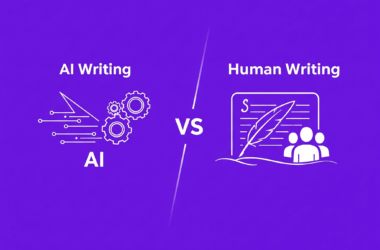Last updated on July 16th, 2025
Brands today face intense pressure to produce high-quality content at scale. Customers expect relevant, timely, and valuable material across all digital touchpoints. But delivering this consistently is tough. That’s where Managed Content Services (MCS) come in.
MCS providers help businesses plan, create, distribute, and optimize content with minimal in-house effort. Whether you’re a growing startup or an enterprise struggling with scale, these services offer the speed, structure, and strategic depth you need to stay competitive.
So, if your current setup is holding back your growth, it might be time to rethink how you manage content. Here are six clear signs that it’s time to make the shift.
Table of Contents:
- Sign 1- Struggling to Keep Up with Content Demand
- Sign 2- Inconsistent Brand Voice and Messaging
- Sign 3- Lack of SEO Expertise in Your Team
- Sign 4- Poor Content Performance Analytics
- Sign 5- Minimal Engagement on Social Media Platforms
- Sign 6- Overburdened Internal Team
- Evaluating the Right Time for Managed Services
Sign 1- Struggling to Keep Up with Content Demand
| Did You Know? Over 55% B2B marketers say they struggle to consistently produce content that prompts a desired action like conversion. |
You know content matters. Blog posts, newsletters, videos, landing pages—the list keeps growing. But if your calendar is always behind, or your output lacks consistency, it’s a clear sign you’re overwhelmed.
How MCS Help
Managed Content Services gives you access to experienced writers, editors, and strategists. They help you scale without sacrificing quality. No more missed deadlines or rushed articles. Just consistent, high-impact publishing that supports your pipeline and brand authority.
Sign 2- Inconsistent Brand Voice and Messaging
When different teams produce content without unified guidelines, the result is often jarring. One campaign feels bold and edgy, the next is overly formal. Customers notice.
Inconsistency chips away at brand trust. When your tone shifts randomly or your visuals vary by channel, people don’t recognize your brand. That reduces recall, loyalty, and credibility.
How MCS Help
Brand voice is a core asset. Managed content providers help you document, standardize, and enforce it. They align messaging across platforms so every touchpoint feels on-brand.
Managed Content Services creates a content framework that reflects your core identity. They embed within your marketing ecosystem and bring together content strategists, SEO specialists, designers, and analytics experts.
This unified approach enables you to plan smarter, execute faster, and continuously improve performance based on real data. Content workflows become streamlined, responsive, and aligned with your growth goals.
Sign 3- Lack of SEO Expertise in Your Team
Good content doesn’t matter if no one sees it. SEO turns writing into revenue. But many teams lack the skillset to optimize content for search. You may be missing keyword opportunities, link strategies, or even basic meta tagging.
How MCS Help
MCS experts audit your existing content, identify gaps, and create a roadmap. They ensure your articles are searchable, link-worthy, and built to perform.
Sign 4- Poor Content Performance Analytics
You’re publishing regularly, but do you know what works? If reporting is ad hoc or limited to vanity metrics, you’re missing out.
How MCS Help
Managed services bring data-driven insight to your content operation. You’ll know what moves the needle and where to double down.
Example: HubSpot uses its own marketing automation and analytics tools to measure which blogs, videos, and landing pages drive engagement and conversions, informing content strategy in real time.
Sign 5- Minimal Engagement on Social Media Platforms
Your posts get seen. But they don’t spark conversation. That’s a sign of misalignment between your message and audience expectations.
How MCS Help
Social content isn’t about frequency alone. It’s about resonance. MCS researches your audience, tests creative formats, and monitors trends, ensuring every post adds value.
Example: Netflix’s social team leverages audience insights and agency support to scale content production (highly engaging, meme-driven content) that matches their viewers’ online behaviors and preferences.
Sign 6- Overburdened Internal Team
When your internal team wears too many hats, productivity and morale suffer. Designers are stuck writing social copy. Marketers spend hours editing blog posts. Strategic initiatives fall behind.
This burnout leads to turnover, slower output, and declining quality. It also limits your team’s ability to innovate or respond to new opportunities.
How MCS Help
Managed Content Services absorbs the execution load. They take care of writing, design, and coordination, freeing up internal staff to focus on growth, campaign strategy, and customer experience.
Example- Microsoft collaborates with multiple content agencies to manage global content needs, freeing internal teams to focus on innovation and customer relationships while maintaining quality at scale.
Evaluating the Right Time for Managed Services
If any of these signs feel familiar, it might be time to consider Managed Content Services. They offer speed, scale, and strategic clarity—without the overhead of building an in-house team. You get performance-ready content, consistent branding, and less stress.
Today, content is business-critical. So is doing it right. MCS helps you meet demand while staying true to your brand. If you’re looking for a partner for your content needs, check out Wittypen. We can help you out with your entire content engine, from ideation to execution.









